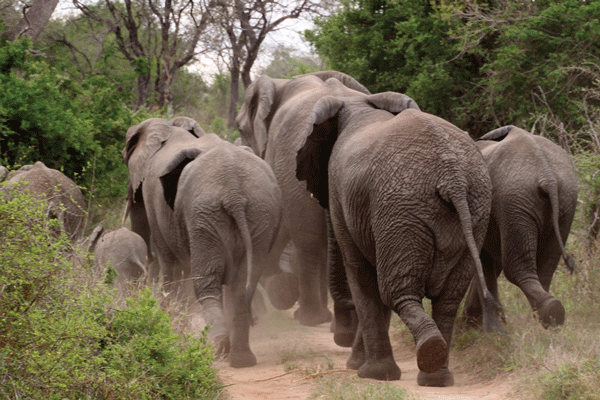Zimbabwe is caught up in a catch-22 situation over its membership at CITES where it is struggling to extract full benefits from its large elephant population but is unable to walk out of the agreement because it will be restricted from trading.
CITES – the Convention on International Trade in Endangered Species of Wild Fauna and Flora – is an international agreement between governments whose aim is to make sure international trade in specimens of wild animals and plants does not threaten their survival.
With a population of 100 000 elephants, Zimbabwe has the world’s second-largest elephant population after Botswana but the country cannot sell its stockpiles due to a ban on ivory trade.
This has resulted in some calls that Zimbabwe must pull out of CITES but it is not an easy task.
“The reason for us walking out primarily is that CITES restricts us from trading and how we are restricted from trading is that they will control the market. You are not able to sell to that market but also, they will put restrictions on your ability to sell,” said Minister of Environment, Climate Change, Tourism and Hospitality Industry, Mangaliso Ndlovu while answering questions at the Senate recently.
“Zimbabwe walking out will just stand out there. Our primary markets are China and Japan, they will remain in CITES and will not be able to purchase as they are bound by CITES. So, when you analyse the benefits of being there and being outside, it is much better to go in there, influence decisions so that the market is opened for those countries that have demonstrated they have conserved their wildlife so well, are able to maintain it and have been able to contain poaching. This is how we have so far been able to maintain our membership at CITES.”
This was in response to Senator Morgan Komichi who asked why Zimbabwe “does not quit from CITES” since it was the desire and wish of Zimbabweans to benefit from its wildlife.
The environment minister acknowledged it would help ‘a lot’ if Zimbabwe was allowed to trade in wildlife but the position was “very difficult within the CITES provisions.”
“All member states of CITES are bound by the provisions of CITES,” Ndlovu said, highlighting that three years ago, Zimbabwe for the first time informed CITES the country was not given the attention it deserves.
“This also applied to the whole southern African region which holds more than 85 percent of the world elephant population.”
Ndlovu noted walking out of CITES was an option but a position which Zimbabwe would have to consider thoroughly.
“The potential bias of our products are members of CITES. They will not be in a position to purchase any if they are still within CITES. If moving out of CITES is a solution to our problems, we would have left the solution within CITES,” said the minister.
He added that southern Africa needed to intensify efforts to influence CITES to make due consideration based on science and experiences of local communities who encounter wildlife on a daily basis.
This consideration, he said, was to allow these countries to do once-off trade of their stockpiles and be flexible when it comes to trading in wildlife resources.
The environment minister said when Zimbabwe goes to the CITES conference to be held this November in Panama, it would strongly advocate for its position to be considered.
“Because the situation keeps getting worse from CITES to CITES and we know that sometimes some Governments, because of funding from certain so-called animal rights groups, fail to consider reason and science. We are in the process of engaging them so that when we go there, we will speak with one voice,” Ndlovu said.
When Senator Dr Tichinani Mavetera asked whether CITES was useful for the country, the minister said both Zimbabwe and the convention have benefited from sharing best conservation practices of different natural resources and of international trade.
“Admittedly, when it comes to, particularly our elephants, we seem to be struggling to extract the full benefits from this,” Ndlovu admitted.
“However, we believe as a country and as a region, we are in a position to help conserve these important animal species for the world, which is why we have always emphasised that we want science to lead the decision-making and not necessarily politics because it is clear that it is politics that is at play.”
The minister said there were clear benefits from CITES provisions as Zimbabwe had been able to curb poaching of many animal species and save a number of bird species that were nearing extinction.
“There are clear benefits from this and we believe the best way forward for now, is to try and influence CITES to make considerate scientific decisions that also take due consideration of communities who bear the brunt of living adjacent to the wildlife species,” summed Ndlovu.

